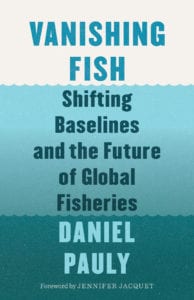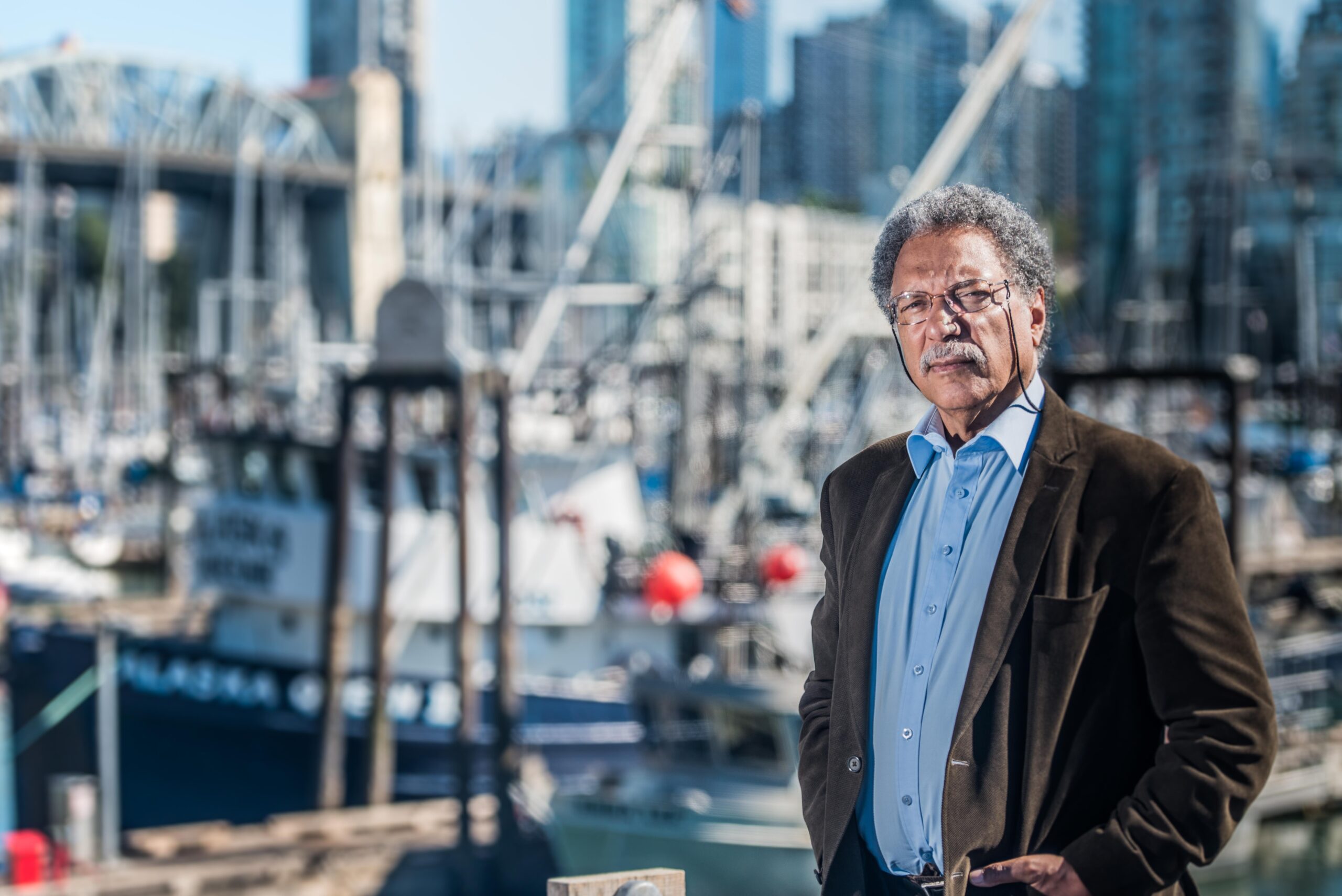If Jesus were to appear on the shore of a modern-day ocean with the intent of plucking fish out for distribution, he might wonder why finding even a couple is so difficult. The fact is that around the globe, fish are disappearing — hyper-intensive and government-subsidized industrial fishing has depleted our seas of life.
But as fisheries scientist Daniel Pauly argues in his new book Vanishing Fish: Shifting Baselines and the Future of Global Fisheries, it’s not too late to confront what he refers to as “environmental amnesia.” By implementing laws with jaws and drastically scaling down fisheries, Pauly reminds us of what could still be if we take action to protect and rebuild fish populations for future generations. He is the principal investigator of the Sea Around Us, a Vancouver-based initiative that studies the impact of the world’s fisheries on marine ecosystems, and a professor at the University of British Columbia. We caught up with Pauly in Perth, Australia, ahead of the launch of Vanishing Fish.
Susan Nerberg: Explain the title of your new book.
Daniel Pauly: “Shifting Baselines” is the title of an essay I published in 1995. It’s been cited like crazy and is also behind the creation of the scientific discipline called maritime historical ecology. Any person, whether scientists or people connected with nature, will see things during a certain age, say, adolescence, and that will become their anchor point for perceiving change in their lives. But our parents’ or grandparents’ anchor point is lost to us, so we don’t factor in the change they experienced; they, in turn, they did not count the change that their parents saw. Over time, there is a lot of change we’re not aware of, but if we talk only about the change we have witnessed, we underestimate human impact on nature.
Maritime historical ecology is an attempt to recover the past by using so-called anecdotes. A student who’s looking at the recreational fishery will see records of fish that are a metre long — a trophy fish. But for the same species, the newspapers of the early 20th century mention fish that were two metres long. This is not an anecdote; this is data that you can use to compute characteristics that, today, fish no longer have. In fisheries, we have to recover the past before industrial fishing and massive recreational fishing began. So, shifting baselines is the anchor point for the whole book. It talks about the past: what we had, what we have lost and what we don’t know about. And it talks about the future, because the future can be positive — if we try to recover the past.
SN: A lot of people are concerned about the depletion of fish stocks. What does the future look like?
DP: Industrial fisheries have never been sustainable, always moving to new areas because they leave behind devastated landscapes. They are basically Ponzi schemes: you need new investors all the time to feed the older investors who expect returns; they don’t live off the natural interest of the capital we have in the bank, which is called nature; rather, they rob the bank itself. Sustainable fisheries mean that we have enough fish in the bank and that we can live off the interest. For cod in Canada, that means that we didn’t fish at the depth the cod occurred; we skimmed the surface for 500 years, taking the cod that came up, while the fish at depths remained inaccessible. The depth, the distance from the shore, the cold, the storms — that was all protection. But now we can fish anything, anywhere, anytime we want, so we can reach into the bank and take more than the interest. The essence of sustainability would be to have a large portion of fish inaccessible.
This can be achieved in two ways: One is by creating marine protected areas, the other is by limiting fishing by not using certain gear. So much of the fishing, to be sustainable, should be done on an artisanal basis, and not having industrial fishing with trawlers. And fish would become something we eat once in a while, a ritual food you eat on, say, Sundays and look forward to. The future of fisheries — if fisheries are the future — will be that they are scaled down.

SN: Each country sets its own catch limits or quotas for their exclusive economic zones (EEZ). If we are going to deal with the problem of overfishing, shouldn’t we take a global approach? How can we get away from this local view and assessment of fisheries?
DP: Just turn that idea around. The fact that every country has an exclusive economic zone is, in fact, part of the solution. Before we had EEZs, the fisheries problems were all international problems. Since the EEZs were created, most fisheries are now national problems. Each country, except when they’re in a union with a common fisheries policy, [such as the European Union], has the possibility to say, “In our EEZ, this is going to happen, and nothing else.” Australia, for instance, doesn’t allow fishing by foreign vessels. The problem is that some fish-rich countries don’t have political power to say no to big fishing countries. Senegal and Mauritania can’t say no to the Chinese, the Russians or the Spaniards that want to fish there. Senegal, for example, exports peanuts, and the European Union can say, “Forget about selling your peanuts if you don’t let us fish here.”
The instrument that the EEZ represents is that as a country, you have the authority to say no. In principle, every country can protect their own fish. So the solution doesn’t need to be global, every country can rebuild its own stocks and have a healthy environment while their neighbours mess up.
SN: What does Canada need to do to secure healthy populations of cod on the East Coast and salmon on the West Coast?
DP: First of all, Canada needs to have — and it sounds crazy — more research. Canada totally dismantled its research capabilities in terms of vessels, and so on, in the 90s. That’s number one. Number two is that Canada doesn’t have legislation that obligates managers to rebuild the stocks. In Canada, therefore, it is possible to suggest continued overfishing, so even when you have an overfished stock, you can continue to overfish it. Or you can propose to rebuild it and the minister can intervene and say, ‘My fishers, because I’m from P.E.I., they want to continue to fish.” Ministerial discretion and ministerial intervention are the main problems.
If I can contrast, in the U.S., this is totally mechanistic: if you have a stock and it’s overfished, the quota has to be so low that the stock can rebuild within 10 years. And if the quota that is decided by the managers is still too high because of political pressure, you can sue them for not reaching their rebuilding goals within 10 years. This is called the Magnuson–Stevens Act and it is the most powerful in the world, and it is something we should have.
SN: On an individual level, British writer and environmentalist George Monbiot recently wrote in a Guardian opinion piece that we all need to stop eating fish if we want to save some for future generations. Is he right? And should the onus be on individual consumers to eat less or nothing at all?
DP: No, it’s not individual choice that will create change. In the case of smoking in public, it was public pressure followed by legislation that made public spaces smoke-free. Deciding not to eat fish is virtue signalling; it makes you feel good but it doesn’t change the world. I’m so fed up with virtue signalling. Maybe you need it to not be a hypocrite, but that’s all. You change things by being political, by convincing other people to join you in pushing the government to change the law. Nobody cares what you eat. The point is, what can you do that will convince your parliamentarians to change the law?
For more of Broadview’s award-winning content, subscribe to the magazine today.















